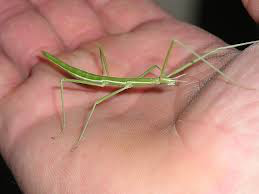
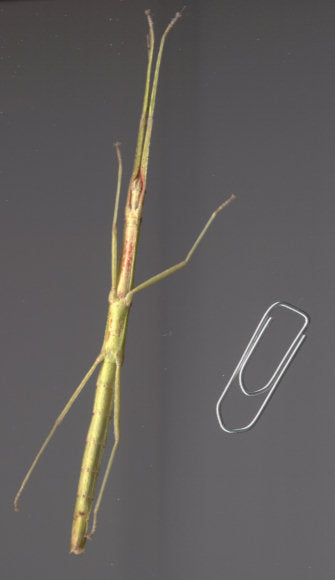
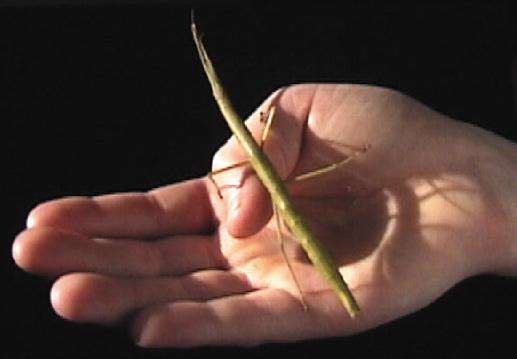
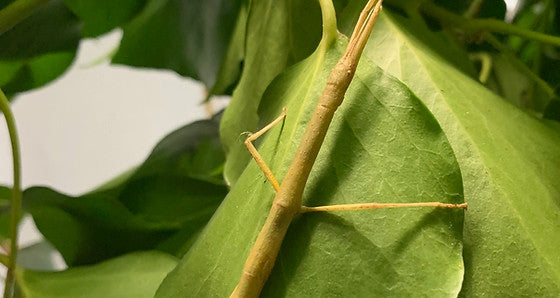
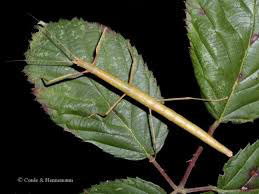
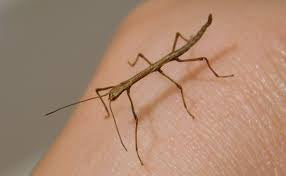
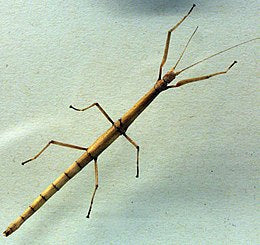
Carausius morosus 'Indian' or 'laboratory' stick insects 6-pack sale
$140.00
Carausius morosus 'Indian' stick is a species of Phasmatodea (phasmid) that is often kept by schools and individuals as pets. Culture stocks originate from an original collection from Tamil Nadu, India. Like the majority of the Phasmatodea, they are nocturnal. Culture stocks are parthenogenetic females that can reproduce without mating. There are no reports of males, although in captivity, gynandromorphs (individuals with both female and male characteristics) are sometimes reared
Description
Females are elongated and about 80–100 mm in length, ranging from a light green to a darkish brown in color. The front legs have red patches at the base of the forelegs and similar but yellow patches on the mid-legs. Eggs are ovoid and brown, with a beige capitula at one end. When the eggs hatch, the plug opens and dark, tiny, string-like young crawl out of the opening. The eggs are haploid.
Behavior
When disturbed, the major defence method is feigning death, with the body becoming rigid and the legs held along the line of the body. Other times, they may be found swaying to mimic the movement of foliage in the wind.
Feeding occurs at night when the insects are active. During the day, they rest (often with legs in line with the body) on their food plants.
Care in captivity
This species is easy to rear, feeding on fresh privet, ivy or bramble. They need to be kept in a cage around 25 cm in height to allow for successful molting. Females will lay eggs shortly after reaching adulthood, at the rate of several per night. These can be hatched on a dry paper towel, or in a dry dish. Eggs can take four months to hatch, depending on many factors, including temperature. This is species number one on the Phasmid Study Group Culture List.
Accidental introductions
C. morosus in Pennsylvania
Accidental introductions have been recorded around the world, including in South Africa, Great Britain, and the United States, where they have sometimes become pests. Studies at San Diego Zoo found the introduced species on many different ornamental plants.
Attention: These are shipped on Mondays, weather permitting, and Next Day Air shipping is required.







